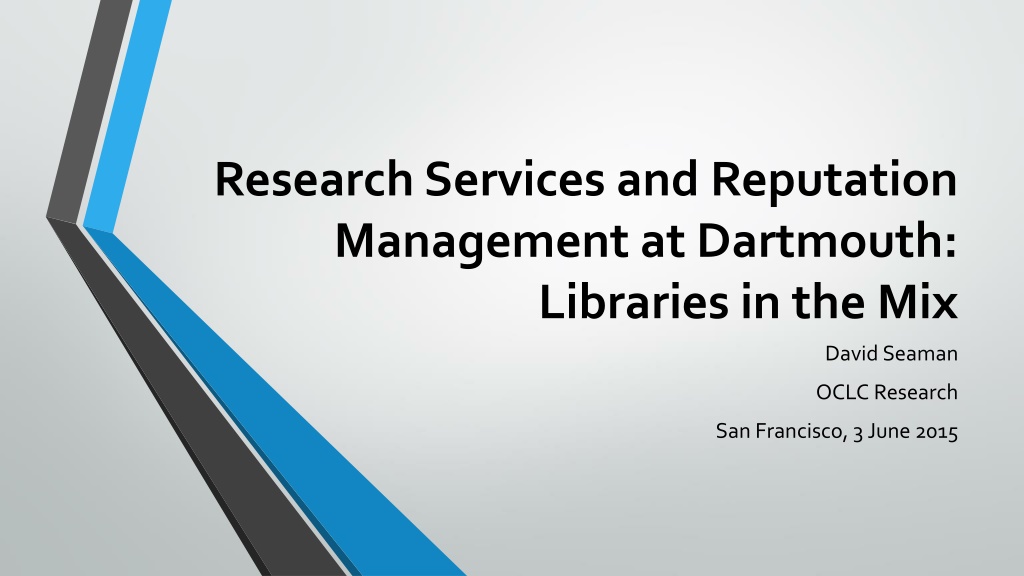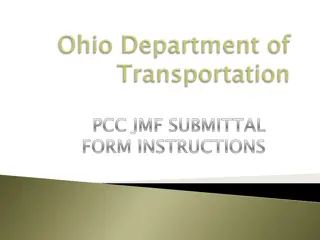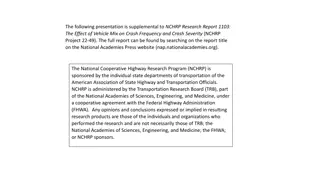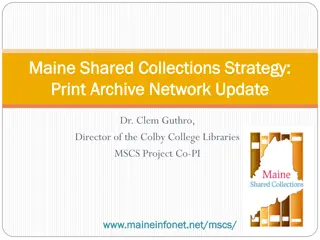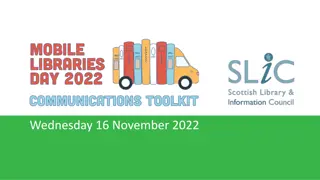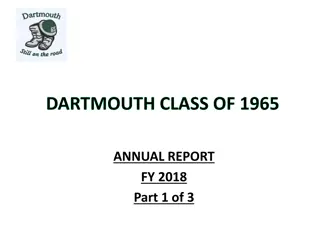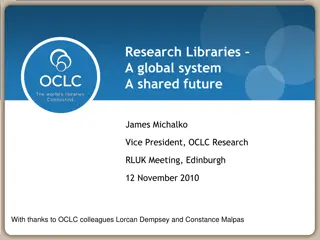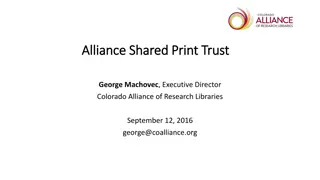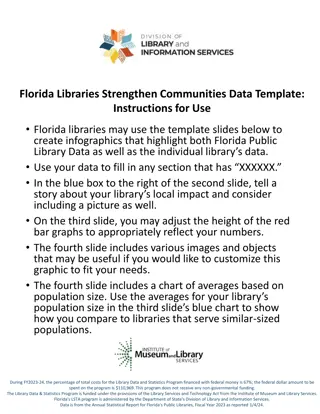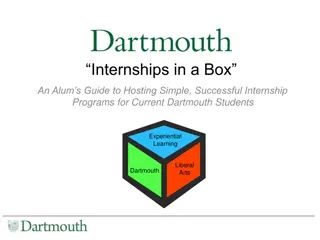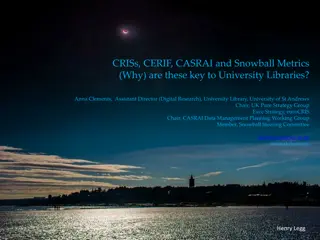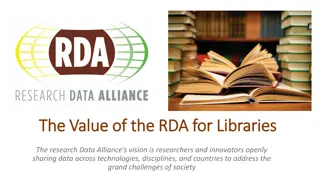Research Services and Reputation Management at Dartmouth: Libraries in the Mix
Dartmouth College, a prestigious Ivy League institution, has been actively involved in enhancing its research services and managing its reputation through robust digital library programs. With a focus on increasing global awareness of Dartmouth's research, the institution has made significant investments in campus infrastructure and established strong collaborations between the library and Information Technology Services (ITS). Key initiatives include implementing Fedora/Hydra for Dartmouth Academic Commons and Digital Library, as well as Symplectic Elements for citation management services. The joint efforts between the library and ITS, supported by dedicated staff positions and a shared budget, highlight Dartmouth's commitment to advancing scholarly communication and digital scholarship.
Download Presentation

Please find below an Image/Link to download the presentation.
The content on the website is provided AS IS for your information and personal use only. It may not be sold, licensed, or shared on other websites without obtaining consent from the author. Download presentation by click this link. If you encounter any issues during the download, it is possible that the publisher has removed the file from their server.
E N D
Presentation Transcript
Research Services and Reputation Management at Dartmouth: Libraries in the Mix David Seaman OCLC Research San Francisco, 3 June 2015
Dartmouth College Founded 1769. Ivy League institution. 6,300 students (4,200 undergraduates) 1,045 faculty. $210 million sponsored research (FY14). Carnegie "very high research activity classification. $4.5 billion endowment. Top 5 undergraduate teaching (US News & World Report ranking).
Background: Library Robust Digital Library Program, including digital publishing of journals and ebooks. Active role in open access on campus, leading to May 2015 Dartmouth Faculty Open Access Policy (sponsored by the Council on the Libraries). Good relationships with faculty and Information Technology Services (ITS). Strong curatorial interests regarding Dartmouth scholarship.
Background: Institution Institutional goal to increase awareness of Dartmouth research globally. No institutional repository --some department repositories (computing). No faculty profile system --uneven updating of faculty web pages. No central database of faculty scholarly output.
The Service Opportunity Two years ago we prioritized the opportunity to build coordinated campus infrastructure to manage research and drive new services. Strong relationship with ITS library not going it alone presented as a joint initiative from the beginning. Builds on recent ITS investments in robust identity management (Oracle). No legacy systems to work round, replace, or ignore. Yeehah!
New Campus Infrastructure Fedora/Hydra for Dartmouth Academic Commons. Fedora/Hydra for Dartmouth Digital Library. Symplectic Elements for citation management services.
Library/ITS Co-investment Two full time staff positions from ITS: project director and programmer. Digital Scholarship Librarian being hired now. Existing Director of Digital Resources and Scholarly Communications in lead role. Significant commitment from library technologists, metadata specialists, preservation librarian, and subject specialists. Joint budget for licensed software, etc.
Service Focus Market the service, not the infrastructure: Faculty members quick to see advantages of research management services for annual reports, grants submissions, etc. Something for everyone: OA skeptics can still benefit from citation management or data management plans for grants. High touch much done for you, and no mandatory requirements with which to comply.
Faculty Assessment Library and ITS can demonstrate possibilities and opportunities. We don t own the issue. Faculty unease about some types of productivity measure. Needs deep faculty conversations about individual assessment, and policy decisions by campus administration.
Time line: 2015 Build out Fedora/Hydra and install Symplectic Elements. Pass Open Access Policy. Focus on OA journal articles and selected library collections in new repository architecture. Focus on selected departments for citation harvesting and management. Formulate IR policies with faculty committee. Design assessment and marketing plans.
Future Years Fully functional repository for Dartmouth scholarship in all media. Shared architecture between IR and digital library. Citation management services for all Dartmouth faculty.
Conclusion Service-based: minimal work for faculty. Output-based: adding value for individuals and institutions. Aggregates and brands Dartmouth scholarly output, making it easily available for reporting, PR, etc. Broad service portfolio supporting research through the full lifecycle.
Thank You, OCLC Research! David Seaman Associate Librarian for Information Management Dartmouth College Library Hanover, NH david.seaman@dartmouth.edu
